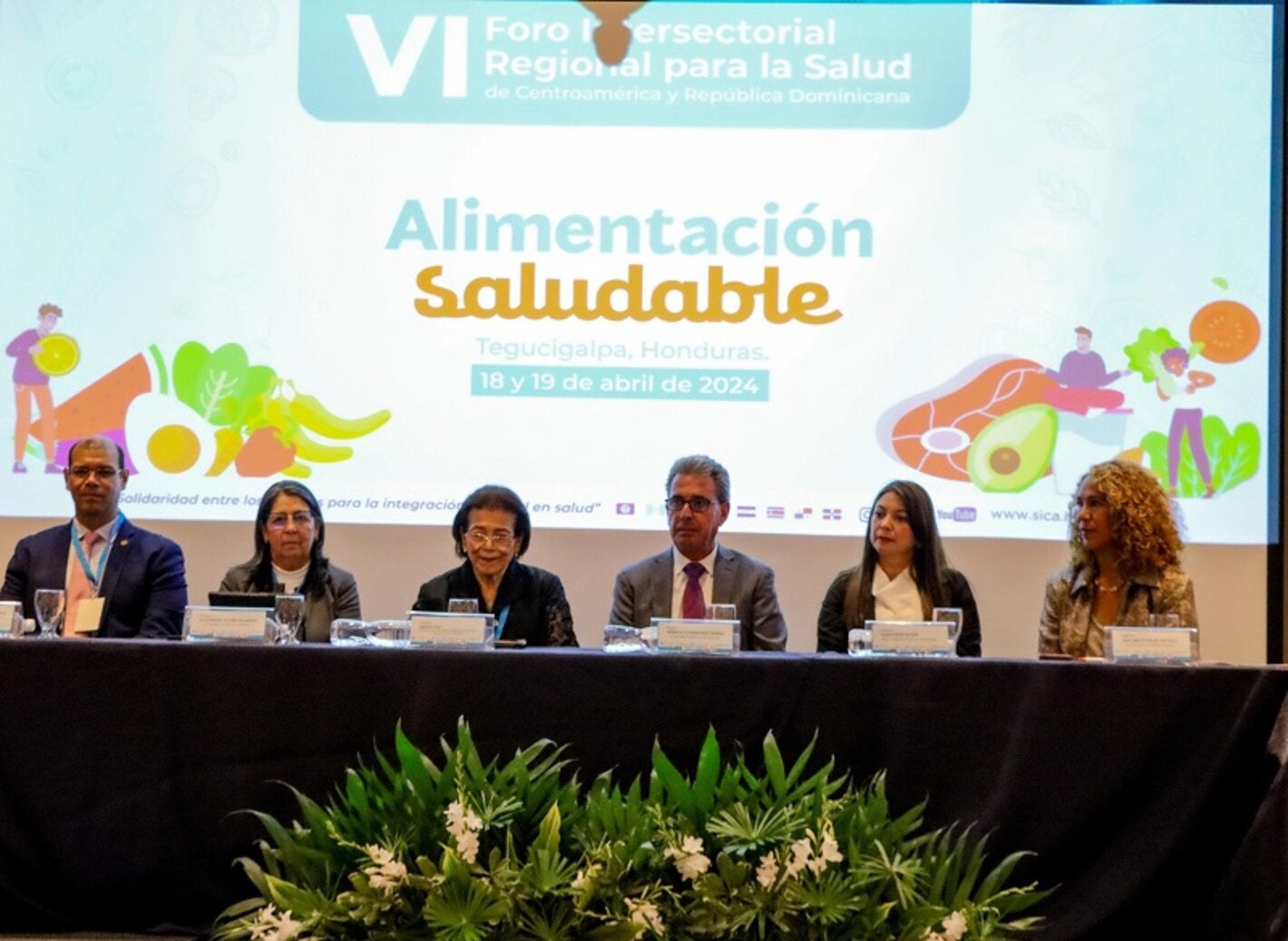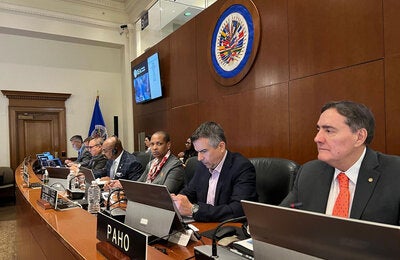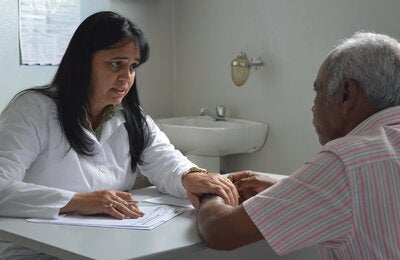
Tegucigalpa, 18 April 2024 (PAHO/WHO). The eight countries of the Central American Integration System (SICA) met in Honduras to formulate and discuss regional proposals on healthy eating topics that will soon be presented to the Council of Ministers of Health of Central America and the Dominican Republic (COMISCA). The three topics addressed were obesity, Front-of-Package nutrition labeling (FOPL), and food and nutrition security.
The forum's primary objective is to promote and strengthen public policies that foster healthy and sustainable food environments and systems. This, with intersectoral participation, is projected to have a profound effect on the elimination of different forms of malnutrition and reduction of noncommunicable diseases.
Ana Emilia Solis, PAHO/WHO Representative in Honduras, on behalf of Director Jarbas Barbosa expressed that today, public health and healthy food policies should be seen not as limitations to trade, but as essential foundations for sustainable economic development. "A healthy population is more productive, participates more actively in the economy and generates lower long-term health care costs. Every dollar invested in NCD prevention and health promotion can generate significant returns in terms of reduced health care costs and increased labor productivity." added.
In the Region of the Americas, overweight and obesity have reached alarming figures. With rates that have tripled in the last 50 years. More than two-thirds of our adult population struggles with obesity and one-third of our youth in the same situation.
Finally, Solis called for a renewed commitment to public health. "Let every consensus recommendation for public policy development be a reflection of our unwavering dedication to the health and well-being of all people in our region. Let us act with courage, with vision and with a firm belief in the principles of equity and social justice," said the PAHO/WHO Representative.
Dr. Anselm Hennis, Director of the PAHO/WHO Department of Noncommunicable Diseases and Mental Health introduced the panel on Interventions to prevent and control obesity, where experts from PAHO, INCAP and the University of Extremadura discussed cost-effective interventions for the prevention and control of obesity in the life course; the status of policies for the control of overweight and obesity in the Region and the position of scientific societies on obesity in Spain.
Hennis expressed that "obesity is not simply a matter of personal choice; it is strongly influenced by the environment in which we live and the food we consume. Therefore, it is crucial to regulate both the availability and promotion of ultra-processed products and sugary drinks, as well as the lack of access to healthy and nutritious options". He also mentioned other cost-effective interventions supported by WHO to improve the food environment.



